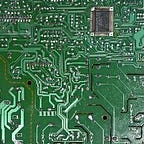The Challenge of Tech-Based Learning
Every scholastic subject should involve utilizing a computer and computational thinking as natively as we integrate paper and pencil.
The biggest challenge of tech-based learning is the idea of tech-based learning itself. Learning, throughout human history, has been “tech-based.” It’s important to explore this statement without being esoteric or pedantic. Thinking that tech and computers require specific training, distinct from other categories of knowledge, is the biggest impediment to widespread tech literacy.
There are few people who would argue we need specific, separate curriculum for using pens, paper, or books. We do not disconnect “pen-based learning” or “writing-based learning” from general education. While we do teach how to use these tools and how to efficiently operate them, we address these skills within the context of learning other subjects. In fact, it would be very hard to master most content without using the technologies of the pen, paper, and book.
The basic, modern human knowledge required to thrive as a citizen has progressed to the point where the same essential nature of pens, paper, and books is true of computers, the Internet, and computation. Using a computer, accessing the Internet, and performing computations to solve problems in the social sciences, natural sciences, and mathematics is obviously important, but being able to use computational technology is also a fundamental skill in disciplines like liberal arts and public health. Every category of human understanding is currently awash in steady streams of data, constantly updating our knowledge base. Our phones, watches, and homes track and monitor aspects of our lives. Our cars are mobile supercomputers. Many of our jobs require operating computers. Our music, visual arts, and literature are generated and curated, bought and sold with computers.
It is not, and will not, be enough to offer tech education as an extracurricular or even as a single subject taught for only an hour during the day. Every scholastic subject should involve utilizing a computer and computational thinking as natively as we integrate paper and pencil.
Why has this not yet happened and why is this thought considered controversial? Perhaps it remains a taboo because for a very long time computers were only owned by the economically comfortable and the majority of jobs did not require them. Over the last fifteen years, however, the cost of computers has become negligible, especially when offset by a lessening need for analog supplies. These factors, combined with the nearly ubiquitous spread of smartphones, means almost all modern jobs, as well as most aspects of our lives, require computer literacy. Yet the cultural legacy continues to delay the integration of computational literacy into every subject we teach; computation is still considered by some to only be necessary for techies, nerds, or business people. This mindset is quickly changing with younger generations, but until older cohorts embrace the ubiquitous need for life-long computational literacy, we will not see tech-based learning integrated into everything we teach.
In future posts, I will explore more ideas for integrating tech-based learning into all subjects through a variety of approaches.
About the blogger:
Russell Foltz-Smith
Russell Foltz-Smith is a seventeen-year veteran of consumer internet and large scale data intelligence platforms. He has started several companies, been part of a successful IPO as well as a handful of private acquisitions, and led several large distributed technical, product, and marketing teams. Currently, Russ serves as a mentor for TechStars Austin and TechStars Los Angeles, providing strategic guidance to start-ups, and is managing director of TechStars. He also serves as advisor and technical strategist for Dashboard.Earth, Thisway Global, Smarter Sorting Inc., and several other stealth start-ups.
Russ has run all aspects of a media and awareness strategy and execution, both as a first party operator and as a third party consultant. Additionally, he has helped create several large scale search engines, as well as social media and analytics platforms currently in use by hundreds of millions of people. His wife and he created Acton Academy Venice Beach in 2012, a K-12 Learner Driven School in Los Angeles, CA.
In late 2015, Russell retired from TrueCar, where he was named “Top 100 IT Executive” by ComputerWorld Magazine for his work, and launched a successful visual and fine arts career. He has held four solo exhibitions, written a book, sold paintings all over the world, and continues to produce art on a daily basis. His art and philosophy can be found at www.worksonbecoming.com. Additional writing and essays on technology and culture can be found at www.socialmode.com.
Since March 2017, Russ has worked as Managing Director for the Wolfram Foundation Computational Thinking Initiative. This initiative’s mission is to empower a broad spectrum of today’s youth to swiftly become leading-edge computational thinkers. Learn more about the initiative here.
